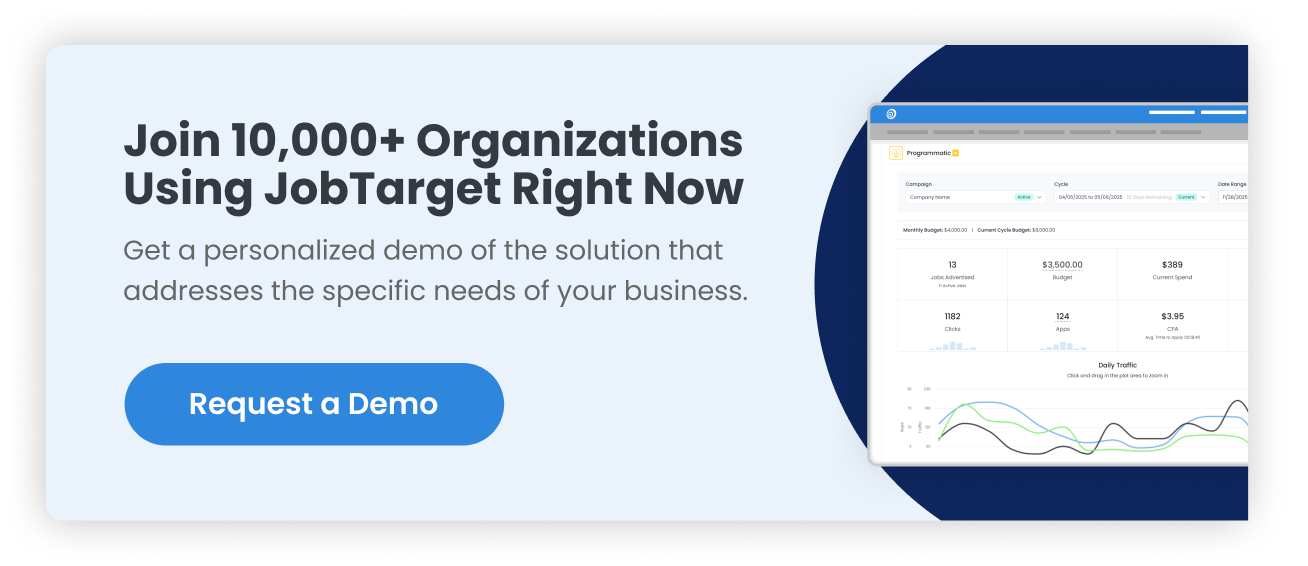As the digital age continues to pump out new technological advances, the challenges recruiters face will evolve. On top of navigating applicants who don’t meet the basic job requirements, we’re also juggling bot applicants and AI-generated content. While there's no perfect solution to these issues, implementing effective resume review strategies can help you identify qualified candidates more efficiently. Here are some practical tips to streamline your recruitment process in the modern age:
1. Clearly Define Job Requirements
This part isn’t new, but it’s still the best starting point. Before diving into the sea of resumes, it's crucial to establish a clear roadmap of what you're looking for in an ideal candidate. This step sets the foundation for an efficient review process:
-
Create a concise list of must-have qualifications and nice-to-have skills.
-
Use this list as a quick reference when reviewing resumes.
-
Regularly update these requirements to reflect changes in the role or company needs.
2. Implement Basic Filters
While Applicant Tracking Systems can be powerful tools for managing large volumes of applications, it's important to use them strategically:
-
Set up filters to screen for essential qualifications (e.g., required licenses or local residency).
-
Use these filters as a first line of defense against clearly unqualified applicants.
-
Remember that while filters can help, they may also miss candidates with transferable skills.
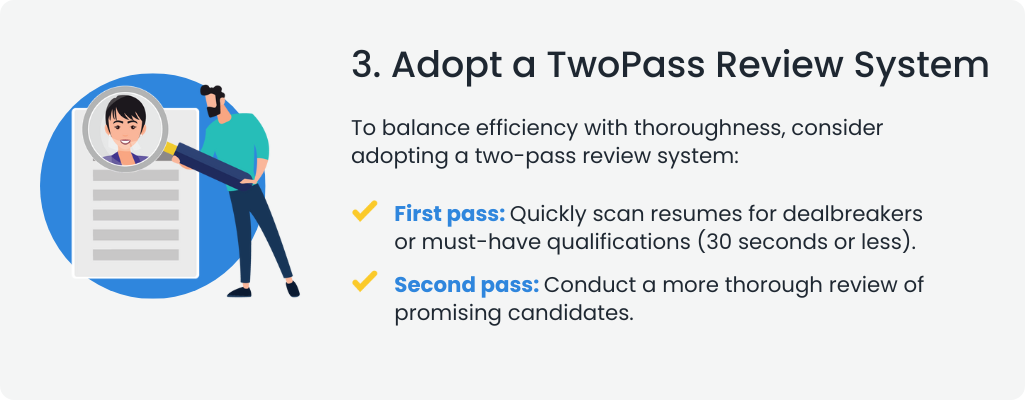
4. Look for Quality Over Quantity in Work Experience
When evaluating a candidate's work history, especially in that first pass, focus on the substance of their experience rather than just job titles or duration:
-
Focus on relevant achievements and responsibilities rather than just job titles.
-
Consider how past experiences might translate to the current role, even if not an exact match.
-
Pay attention to quantifiable results and problem-solving examples.
5. Assess Soft Skills and Cultural Fit
While technical skills are important, don't overlook the value of soft skills and cultural fit:
-
Look for indications of strong teamwork, communication skills, and problem-solving abilities.
-
Consider how a candidate's values align with your company culture.
-
Evaluate extracurricular activities or volunteer work that might showcase relevant skills.
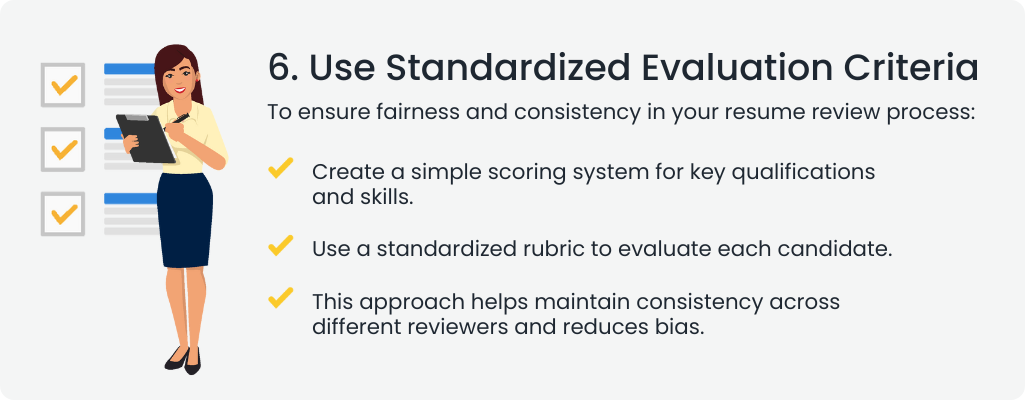
7. Consider Phone Screening for Borderline Candidates
-
For candidates who show potential but don't quite meet all your criteria on paper:
-
Conduct quick phone screenings to clarify qualifications and gauge communication skills.
-
Use this opportunity to assess enthusiasm and cultural fit.
-
This extra step can reveal promising candidates who might not have the strongest resumes.
8. Stay Open to Transferable Skills
Considering how quickly the job market evolves, being open to candidates from diverse backgrounds can be a significant advantage:
-
Look beyond exact job title matches to identify candidates with relevant abilities from different industries.
-
Consider how diverse experiences might bring fresh perspectives to your team.
-
Be open to candidates who demonstrate adaptability and a willingness to learn.
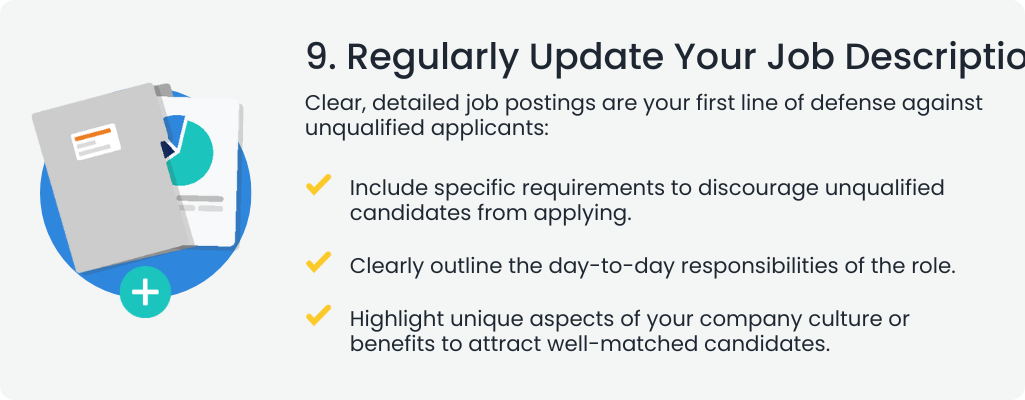
10. Be Cautious with AI-Generated Content
As AI-assisted resume writing becomes more common, it's important to look beyond polished language to the substance of an application:
-
Look for signs of AI-generated resumes, such as overly generic language or lack of specific details.
-
Don't automatically disqualify AI-assisted applications, as some candidates may use AI tools to improve their resume writing.
-
Focus on the substance of the application rather than just the writing style.
11. Combine Automation with Human Judgment
Striking a balance between automation and manual review can help you identify the best candidates more effectively:
-
Use AI matching tools as a starting point, not the final decision maker.
-
Manually review a sample of applications that didn't pass automated filters to ensure you're not missing out on potential talent.
-
Remember that AI tools may miss candidates with transferable skills or unique backgrounds.
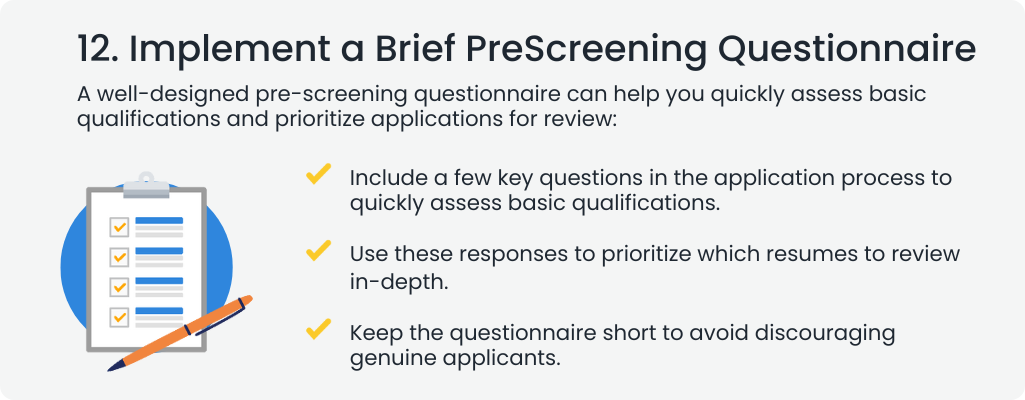
13. Look for Signs of Genuine Interest
Candidates who demonstrate sincere interest in your company and the specific role are more likely to be engaged and committed if hired:
-
Pay attention to customized cover letters or resumes that specifically address your job requirements.
-
Consider candidates who have taken the time to research your company and express why they're interested in the role.
-
These indicators can help distinguish between mass applications and genuinely interested candidates.
14. Continuously Refine Your Process
Regular evaluation and adjustment of your strategies will help you stay effective in identifying top talent:
-
Regularly analyze the effectiveness of your resume review process.
-
Keep track of which strategies lead to successful hires and adjust accordingly.
-
Stay open to new tools and techniques that can improve your recruitment efficiency.
As the job market continues to evolve (and evolve, and evolve again), staying adaptable in your recruitment strategies is not only helpful, it’s vital. Regularly reassess and refine your resume review process to ensure it remains effective in meeting your organization's hiring needs.
Discover How JobTarget Can Support Your Hiring Process
While choosing the perfect hire remains the domain of skilled hiring managers, JobTarget offers powerful tools to streamline your recruitment workflow:
-
Expand your reach to a wider pool of potential candidates
-
Simplify job posting and distribution across multiple platforms
-
Gain valuable insights into your recruitment metrics
-
Access user-friendly applicant tracking features
-
Benefit from our team's expertise in recruitment best practices
Let JobTarget handle the heavy lifting of job distribution and candidate sourcing so you can dedicate more time to the critical task of resume review and candidate selection.
Schedule your demo today to get started!
Learn how JobTarget can complement your hiring expertise and help you build a more efficient, effective recruitment process. Let's work together to find your next great hire!



